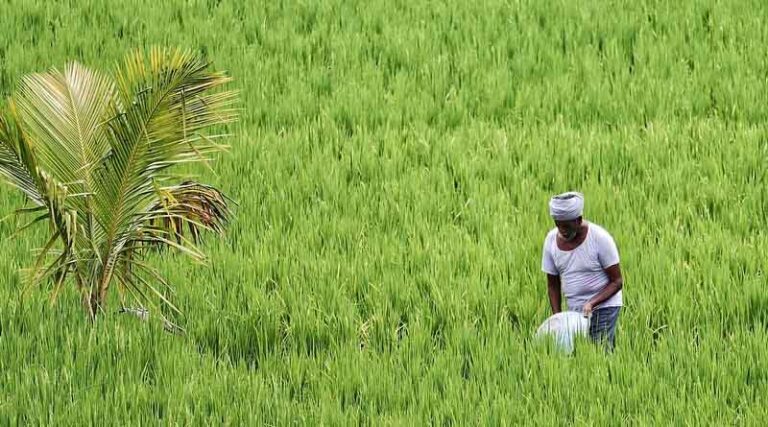
Government Pushes Integrated Approach to Curb Excessive Chemical Use in Farming
13 August 2025, New Delhi: The Government of India has acknowledged that excessive use of chemical inputs in agriculture can increase farmers’ production costs and reduce their net profits. Responding to a question in the Lok Sabha, the Ministry of Chemicals and Fertilizers outlined a multi-pronged approach to address the issue, focusing on promoting alternatives, regulating prices, and creating awareness among farmers.
Minister of State for Chemicals and Fertilizers, Ms. Anupriya Patel, informed Parliament that the government is promoting Integrated Pest Management (IPM), which combines traditional and biological methods to reduce reliance on synthetic chemicals. Under this strategy, farmers are encouraged to adopt bio-pesticides, bio-stimulants, organic farming, and mixed farming practices.
In the financial year 2024–25 alone, 720 training programs were conducted by the Ministry of Agriculture and Farmers Welfare through its Central Integrated Pest Management Centers (CIPMCs), Krishi Vigyan Kendras (KVKs), and State Agriculture Departments, benefiting 21,271 farmers nationwide.
To ensure farmers have access to affordable pest control solutions, the Registration Committee (RC) under the Ministry has been granting expedited approvals for generic pesticides, fostering market competition to stabilize prices. The registration fee for generic pesticides has been kept minimal, and guidelines for bio-pesticides have been simplified. Farmers can also commercially market bio-pesticides during a provisional registration period of two years, further encouraging adoption of eco-friendly inputs.
Addressing concerns about the low absorption rate of synthetic fertilizers—where only 30% to 50% of applied nitrogen is utilized by crops while the rest leaches into groundwater—the Indian Council of Agricultural Research (ICAR) is advocating soil test-based balanced and integrated nutrient management. This involves combining inorganic fertilizers with organic sources like manure and biofertilizers, alongside practices such as split application, proper placement, slow-release nitrogen fertilizers, nitrification inhibitors, and crop rotation with legumes.
ICAR has also developed improved strains of biofertilizers suited to different crops and soil types to reduce chemical dependency. Through frontline demonstrations, farmer awareness programs, and stakeholder training, the council aims to spread these best practices nationwide.
The government’s measures are aimed at not only reducing environmental harm but also ensuring that farmers maximize their returns by cutting unnecessary input costs and improving soil health over the long term.
Also Read: ICRISAT and Partners Discover New Gene for Sterility Mosaic Disease Resistance in Pigeonpea
📢 If You’re in Agriculture, Make Sure the Right People Hear Your Story.
From product launches to strategic announcements, Global Agriculture offers unmatched visibility across international agri-business markets. Connect with us at pr@global-agriculture.com to explore editorial and advertising opportunities that reach the right audience, worldwide.






